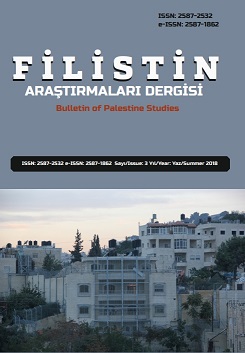Religious Zionism’s Shifting Views on Palestine and the Uganda Scheme
Religious Zionism’s Shifting Views on Palestine and the Uganda Scheme
Author(s): Yusuf Süha SonuçSubject(s): Jewish studies, Civil Society, Political history, Politics and religion, 19th Century, Sociology of Religion, History of Religion
Published by: Muhammed Mustafa KULU
Keywords: Religious Zionism; Palestine; Holy Land; Uganda Scheme; Zionist Congresses;
Summary/Abstract: Up to the 19th century, the remarkable social diversity of the Jews in Palestine was due to the different religious views they held as well as to the appearance of new religious groups amongst them. With the spread of secularism in the 19th century, a new division emerged, that between the religious and the secular Jews. The same division also emerged in Zionism, an ideological and social movement that emerged in the middle of 19th century and gained mass support by its end. Zionism is usually summarized as the Jewish aspiration to establish a state in Palestine. However, the Secular Zionists who constituted the majority in the World Zionist Organization failed to mention either Palestine or Jerusalem as their prospective state’s location in their writings and diaries. The pioneers of Religious Zionism, another front within Zionism, had begun to insist on Palestine long before the Secular Zionists, basing this stance on the Jewish Scriptures. Despite this, they made concessions and supported the Uganda Scheme for a while. The present study aims to examine the Religious Zionists’ reasons for insisting on Palestine, the reasons for the concession they made from this position, the lessons they drew from its results, and their reactions din this context to the contemporary developments in the world.
Journal: FİLİSTİN ARAŞTIRMALARI DERGİSİ
- Issue Year: 2018
- Issue No: 3
- Page Range: 81-95
- Page Count: 15
- Language: English

